Eating For Good Mental Health

Eating For Good Mental Health
Jan 7, 2022 | By JOI team
Mental health is defined as a state of well-being in which a person is able to cope with normal stresses of life, work productively and make contributions to the community. Mental health disorders, on the other hand, consist of a range of conditions that affect a person’s mood, thinking, feeling and behavior. These conditions, also referred to as mental illnesses, include clinical depression, anxiety disorder, bipolar disorder, ADHD, and OCD, among others. (World Health Organization)
Take COVID, for example. It’s not a surprise that during the pandemic, the “new normal” was far from normal. Having to stay home, disrupted holidays with our loved ones and not fully engaging in our regular activities can definitely take its toll on our sanity.
For many suffering with mental illnesses, uncertainties (no matter what they may be) can trigger or exacerbate symptoms related to their condition. It can also cause similar symptoms in individuals not clinically diagnosed with any condition, and that’s because we are all humans.
It’s inevitable to feel anxious, upset, and fearful about what’s going on in the world. Whether it's an unexpected quarantine or just everyday life.
Finding ways to cope with stress and anxiety is key - whether this is reading a book, listening to your favorite playlist, meditating, doing at-home workouts, painting, or playing with your dog. In addition, what you eat can play a role on how you feel, and it can certainly affect your mental health status. Just like our muscles require fuel (energy) to exercise, our brains require fuel to function 24/7. The same way in which the quality of the gas can affect how well your engine runs, the quality of the food can affect how well your brain runs.
In this case, our premium fuel is high-quality foods, those that deliver a great amount of nutrients such as vitamins, minerals, healthy fats and phytochemical- nutrients in plants that help us fight disease - all which support a healthy and happy brain. These nutrients are found in whole foods, those that are in their whole form, not processed (or perhaps minimally processed such as veggies that come pre-cut in a bag). But how do foods have the power to interact with our body chemistry and modulate brain health? Well, it's time to get nerdy:
How Does Food Affect The Brain?
Food affects the production and release of hormones such as insulin and glucagon, as well as neurotransmitters such as serotonin. Insulin and glucagon are responsible for maintaining the balance of glucose (sugar) in the blood, which is the main source of fuel for the brain. Any disruption in this balance, usually due to the consumption of too much sugar, can affect the steady supply of sugar to the brain. Too much sugar can result in jitters, anxiety, and feeling irritated, which is followed by a sudden crash in the sugar supply (just like the sugar crash you experienced after a bag of candy when you were a kid). In turn, this sugar crash can leave you feeling sluggish, tired, irritated, and you may even experience sadness.
As for serotonin, it has an important role in regulating mood, appetite and sleep. Because the majority of serotonin is produced in your gastrointestinal tract, it is affected by the bacteria in your gut, especially the “good” bacteria which plays a major role in keeping us healthy. Since food is a major determinant of how much good bacteria we have living inside us, it also affects the production of serotonin. Seratonin hormones, in turn, play a role in our mood. In fact, there is a promising and growing body of evidence showing the gut-brain connection and how these two are intimately related.
Now, before we dive into what foods support mental health, let’s learn what the science says.
The Science
- Studies analyzing populations consuming Western-type diets (higher in processed foods, saturated fats, refined grains and added sugars) and Mediterranean or plant-rich diets (high in fruits, vegetables, whole grains, fish and seafood) consistently find that those consuming a typical Western diet are at higher risk for depression, some studies even showing up to 35% more risk.
- An UK-based study found that there is a positive relationship between fruit and vegetable consumption and mental well-being (life satisfaction). It found that not only the quantity but the frequency of fruit and vegetable consumption is important in promoting well-being and increasing mood-lifting benefits.
- A study conducted among Australians found that increased fruit and vegetable consumption was predictive of increased happiness, life satisfaction, and well-being. The study compared the increase in life satisfaction “points” to be equivalent to the psychological gain of going from unemployment to employment.
- Results from a meta-analysis found a two-way relationship between obesity and depression. Obesity, which is usually associated with poor dietary habits, was found to increase the risk of depression, and depression was found to be predictive of a person developing obesity.
- A systematic review looking at the relationship between diet quality and depression risk found that higher quality diets, which are rich in fruits, vegetables, legumes, nuts, seeds, soy, fish and seafood, were associated with a significantly lower risk of depressive symptoms.
- A meta-analysis found that dietary patterns characterized by high intake of red and/or processed meats, high-fat dairy products, refined grains, added sugars, and high-fat condiments, with low intake of fruits and vegetables were associated with a significantly higher risk for depression.
Happy Foods
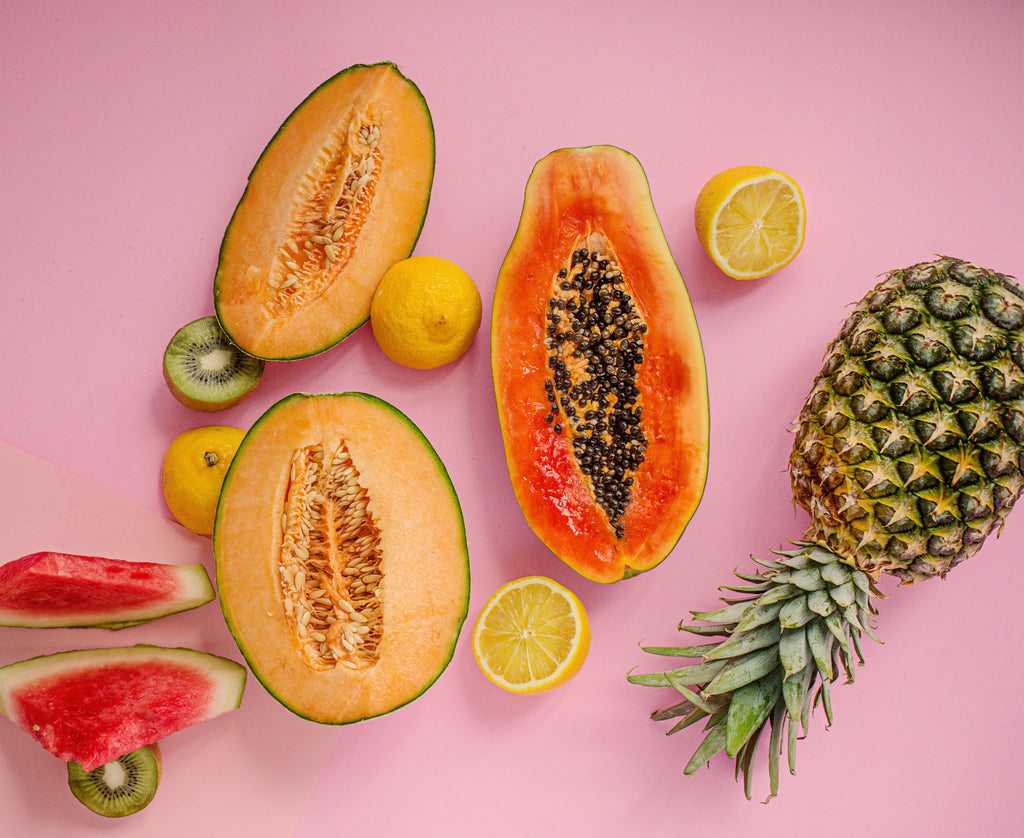
-
Fruits and vegetables: You’ve heard it time and time again- eat the rainbow. That could not be more accurate. Fruits and vegetables are the highest sources of several vitamins, minerals, and fiber, all which support a healthy gut flora, happy hormones and brain health. Aim for a minimum of 5 servings of fruits and vegetables per day, that’s about 5 cups. When it comes to vegetables, the more servings you can get, the better.
-
Whole grains: These unprocessed, high-fiber grains are important for maintaining a healthy gut and controlling the levels of serotonin in the gut. They are also great sources of B-vitamins, important precursors of neurotransmitters. Whole grains include brown rice, quinoa, oats, amaranth, millet, buckwheat, farro, whole grain products such as multi-grain bread and whole wheat pasta, rye, spelt, among others.
-
Legumes: Besides being a great source of plant protein and fiber, legumes are full of important brain-supporting minerals such as zinc and magnesium. A deficiency in these minerals has been associated with increased risk for depression. Legumes include beans, lentils, peas, chickpeas and soybeans.
- Nuts and seeds: You know that here at JOI, we are nuts about nuts. And seeds. But for good reason: nuts are also incredible sources of important vitamins and minerals that support mental health such as magnesium, selenium, copper, and zinc. Walnuts in particular are a great source of omega-3 fatty acids, which support brain health.
If you’re interested in learning more about how each nutrient affects mental health, check out this comprehensive research review.
Not-So-Happy Foods

-
Red and processed meats: sausage, hot dog, bacon, cured or smoked meats, etc.
-
Highly processed foods: your typical fast food meal, frozen meals, packaged foods with an extensive ingredient list (most of which you can’t recognize).
-
Saturated and trans fats: animal fats, butter, fried foods, shortening, lard, whole-fat dairy products, tropical oils, etc.
-
Refined/Added sugars: candy, baked goods (cookies, cakes, sugary pastries), ice cream, table sugar, high fructose corn syrup, etc.
- Sugar-sweetened beverages: beverages with added sugars; soft drinks and sodas, sports drinks, teas, energy drinks, coffee drinks, and flavored juice drinks.
- Refined grains: white flour products such as pastries, white bread, white pasta, some cereals, chips, crackers, etc.
Now that we know what to eat for a happy mind, it’s important to note that diet is just one factor that can help maintain a healthy brain and balanced mental state. Along with the foods you eat, your relationships, social interactions, physical activity, stress-management activities, sleep quality and overall lifestyle quality also play crucial roles in helping prevent mental health disorders. Finding what works best for you is the key to keeping negative thoughts away and keeping you happy!
About Carolina Schneider MS, RD:
Carolina Schneider, MS, RD (@CarolinaTheGreenRD) is a registered dietitian and writer specializing in plant-based nutrition. She is the founder of Hungry for Plants, a company dedicated to offering nutrition consulting services to health and wellness brands, primarily in the plant-based food and beverage space. Carolina believes in eating better, not less. Her favorite JOI recipe is the Cashew Coconut Curry.





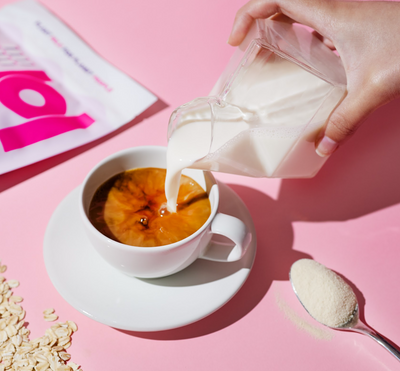

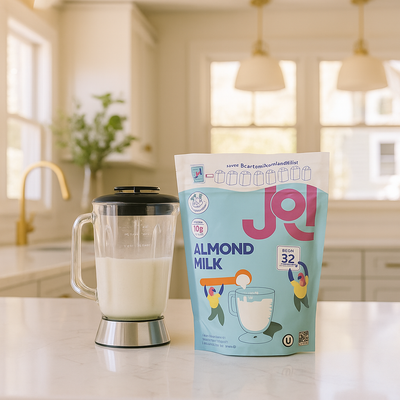
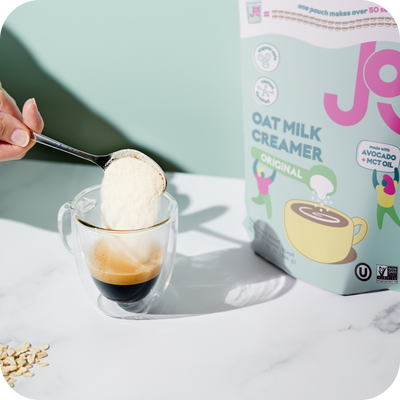

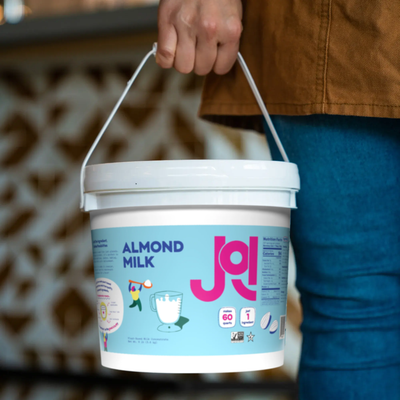
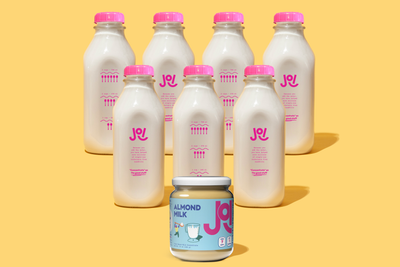


 CHECKOUT
CHECKOUT